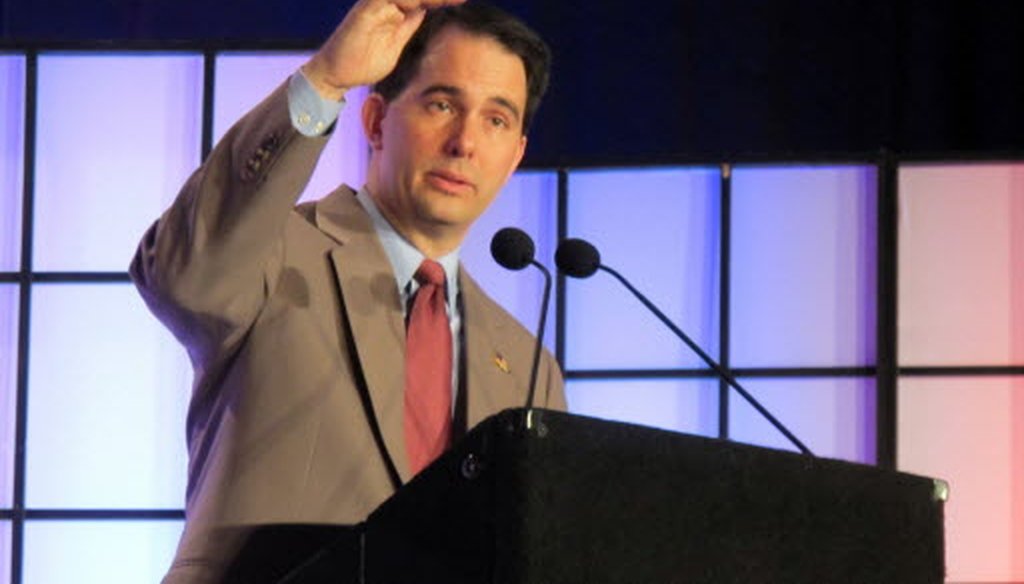Stand up for the facts!
Our only agenda is to publish the truth so you can be an informed participant in democracy.
We need your help.
I would like to contribute

After months of calling a right to work measure for Wisconsin a "distraction," Gov. Scott Walker said he would sign a bill being fast-tracked to his desk.
The May 3, 2012 release of a videotape showing Gov. Scott Walker speaking of a "divide and conquer" strategy against unions has again brought labor issues to the fore in Wisconsin.
Walker’s remarks were made to a billionaire campaign supporter who asked him if he could make Wisconsin a "right to work" state for private-sector unions.
Labor issues have flared since Walker’s controversial limits on public-sector unions were debated and became law in 2011 – and we rated many of the claims in that debate.
Now right-to-work laws, which block private-sector unions from compelling workers to pay union dues, are front and center in the debate as Walker tries to hold his job in the June 5, 2012 recall election forced by anger over his union limits.
His Democratic opponent, Tom Barrett, contends that Walker wants a private-sector right-to-work law, but Walker says he won’t push it.
Here are some highlights of right-to-work rulings on PolitiFact’s Truth-O-Meter.
In December 2010, we rated Half True a claim by state Rep. Robin Vos (R-Rochester) that right to work states "have higher rates of income growth."
We noted: "He’s correct on that statistic. But he leaves the impression that right-to-work status is what causes incomes to rise. As our interviews with economists show, that’s debatable, at best. And that’s important context left out of the statement."
PolitiFact National gave a Mostly True to Fox News host Bill O’Reilly, who said that "the right-to-work states have much lower level of unemployment than the union states do."
"To say it’s ‘much lower’ is a stretch, but he's right that it is lower," the item concluded.
Our Rhode Island counterparts rated Mostly False a state senator’s assertion that "if you look at states that are right to work, they constantly do not have budget deficits and they have very good business climates."
Many such states have had budget deficits, they noted, and the research on business climates is unclear.
PolitiFact Georgia found True a Newt Gingrich claim that right-to-work states "are creating a lot more jobs today than the heavily unionized states."
During the Republican presidential primaries in January 2012, PolitiFact National rated False a Mitt Romney statement that the National Labor Relations Board told Boeing it couldn’t build a factory in South Carolina because that state is a right to work state.
Here’s the conclusion of that item: "The NLRB’s complaint started a legal process that could ultimately have resulted in a factory closure, but the NLRB as a whole didn’t tell Boeing anything. What’s more, the legal basis for the action centered on whether Boeing was punishing the union for staging strikes, not that Boeing had opened a factory in a right-to-work state."
Our Sources
Milwaukee Journal Sentinel, "Barrett, Walker at odds over ‘divide and conquer’ union remark," May 11, 2012
PolitiFact archives













































